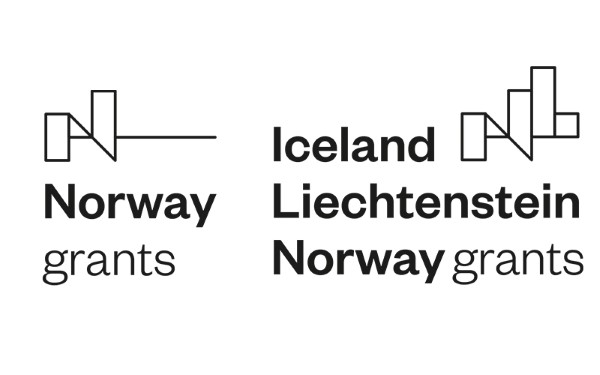The final conference showcased the collaborative efforts of a diverse consortium, including esteemed scientists from the University of Oslo, Reykjavik University, and Tallinn University of Technology (TalTech). The consortium was led by the project's visionary, Dagnija Loča, Head of RTU Rudolfs Cimdins Riga Biomaterials Innovation and Development Centre. The project's innovative approach to converting waste to resources underscores the potential of eggshells as a valuable raw material for developing biomaterials aimed at bone regeneration.
Qianli Ma and Ólafur Sigurjónsson presented compelling results from their research to students and faculty of Riga Technical University. Their presentations highlighted the project's achievements in using green technology to synthesise amorphous calcium phosphate (ACP) particles from eggshells, demonstrating a promising strategy for converting food waste into synthetic bone graft materials with excellent bioactivity.
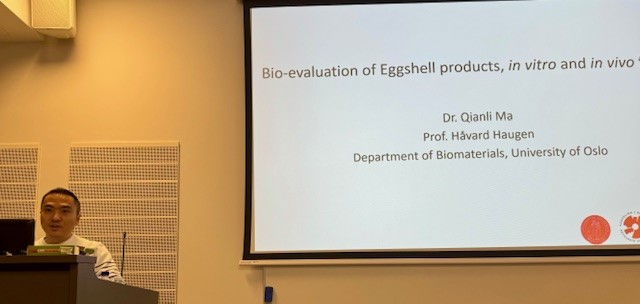
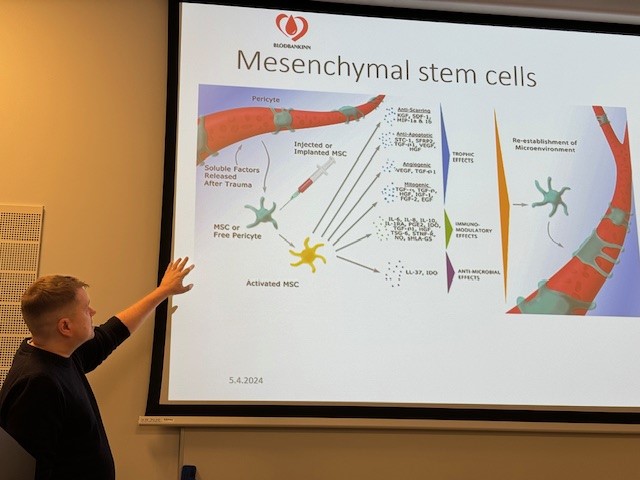
The project used a unique dissolution-precipitation method developed by the team to create ACP particles with enhanced stability and re-crystallization resistance. This novel approach leverages the abundant and underutilised resource of chicken eggshells and paves the way for developing low-cost, sustainable biomaterials with significant potential for bone tissue engineering.
In addition to the academic sessions, participants had the opportunity to visit the new building of the Baltic Biomaterials Centre of Excellence (BBCE). This visit underscored the project's alignment with the BBCE's goals to address musculoskeletal disabilities by developing innovative, cost-effective implant technologies. The BBCE aims to foster collaboration and coordination across organisations, overcoming the challenges of fragmentation and duplication in biomaterials research. With the backing of Horizon 2020, the BBCE seeks to establish a leading centre for advanced biomaterials development, leveraging the strengths of international partners and the existing infrastructure in Latvia.
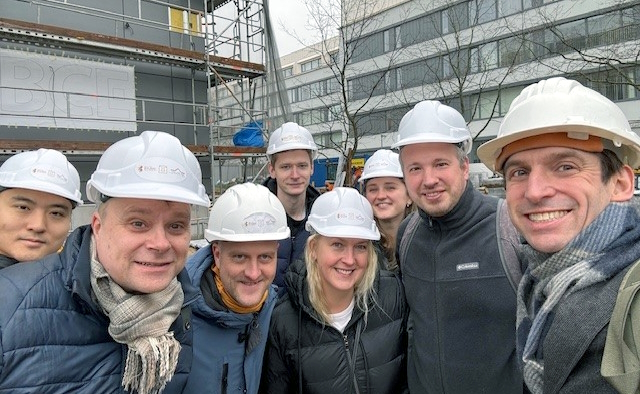
The two-day meeting, organized by Kristine Salma-Ancane and Dagnija Loca, provided a platform for in-depth academic discussions on processing eggshells into high-value products. The event explored both inorganic calcium phosphates and organic proteins with high bioactive content. Despite challenging weather conditions, the event was hailed as a success, drawing attention to the project's contribution to advancing the development of sustainable biomaterials and promoting a greener future.
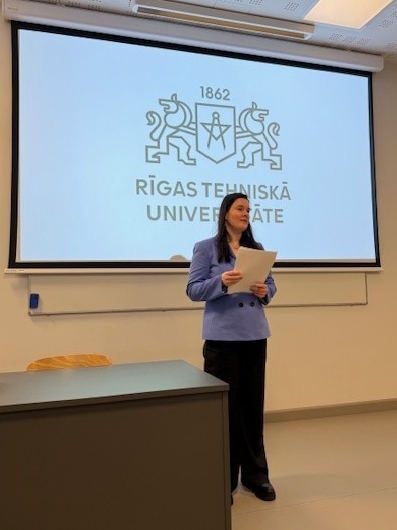
The journey of the EGGSHELL project, supported by the Baltic Biomaterials Centre of Excellence, exemplifies the power of international collaboration in driving scientific innovation. The Department of Biomaterials at the University of Oslo is grateful to the project coordinator and all consortium members for their dedication and smooth collaboration throughout this impactful project. More than 5 papers have been generated and many more will be published this year too.
As we move forward, the EGGSHELL project leaves a lasting legacy. It highlights the importance of sustainability in biomaterials research and the potential of interdisciplinary collaboration to address global challenges. The Department of Biomaterials remains committed to exploring innovative solutions contributing to a sustainable future for all.
The Department is grateful to all partners involved in the "Waste-to-resource: eggshells as a source for next-generation biomaterials for bone regeneration" project (LV-RESEARCH-0005), supported by the EEA and Norway Grants. Special thanks to Riga Technical University for leading this pioneering initiative alongside our partners Reykjavik University and Tallinn University of Technology and for the generous contribution of the EEA and Norway Grants
